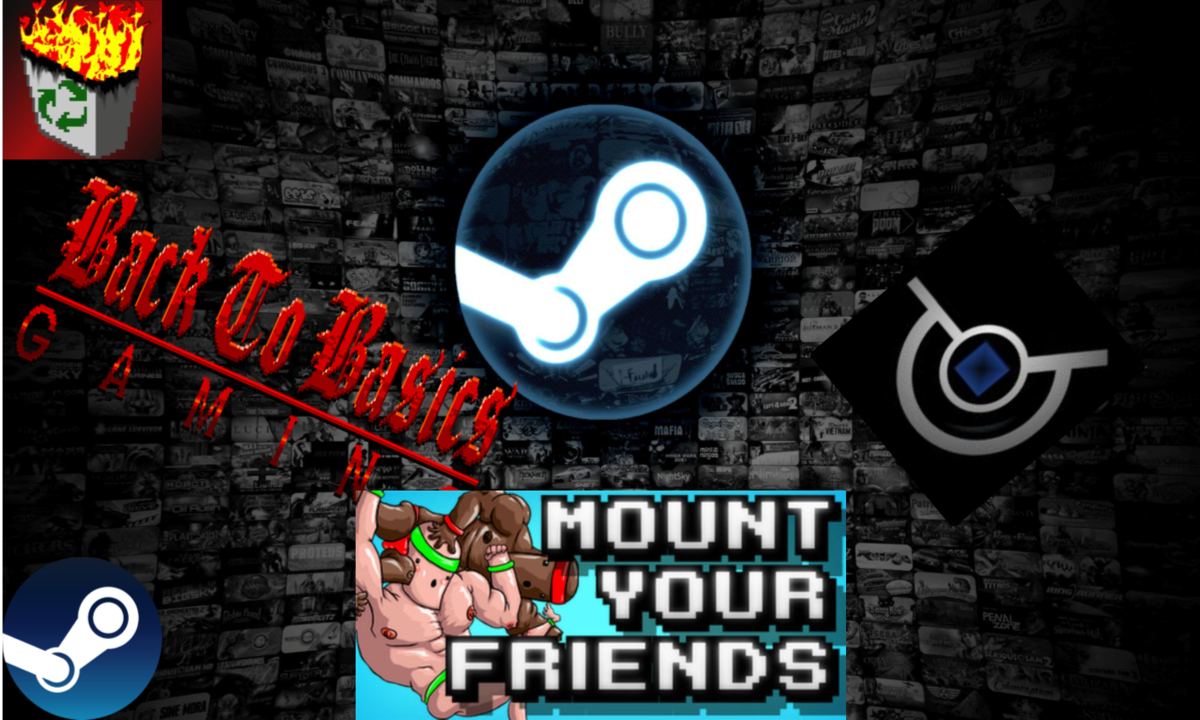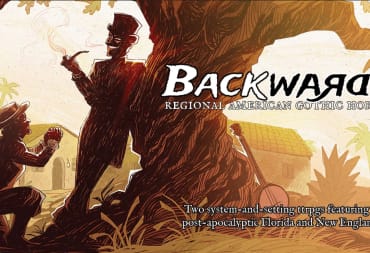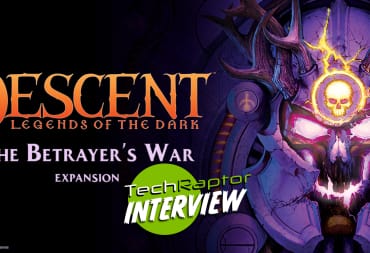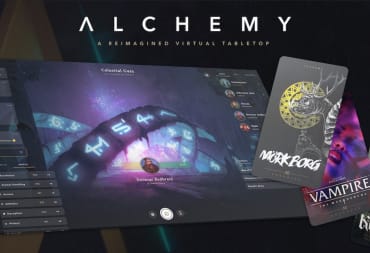As part of SteamWatch's year-end retrospective, I sat down with three different developers to discuss the change from Steam Greenlight to Steam Direct and their experiences with both systems.
The first developer is Daniel Steger, developer of the game Mount Your Friends, a commercially successful game that got onto Steam through Steam Greenlight and also found popularity on the Xbox Live Indie Game program. He is also the head of the development team Stegersaurus Software. The second developer (who also acts as a game publisher) was Daniel Steer, founder and lead developer for Back to Basics Gaming, a Steam developer, and publishing company that has gotten a great number of titles on Steam, using both Greenlight and Steam Direct. Some titles under Back to Basics Gaming's name includes Turbo Pug, Spikit, and Catch a Falling Star. The final developer was a representative of a new indie developer group by the name of Cubic Timeline Productions, who have one game under their belt by the name of Vulture, which got through Steam through the Steam Direct process; however, they also had an MMO called NCG-19: Gravitus on Steam Greenlight.
Daniel Steger (Stegersaurus Software)

Daniel Steger: Not as difficult as others. My game had an existing audience on XBox360 and was getting votes, so my main fear was Valve might take offense to my game thematically and deny it progression on those grounds.
MO: How did your game perform when it came to the game actually getting on the store?
DS: Quite well for a 1 man studio like myself. I set a relatively low price point at the time and got a good audience for the game. Lots of coverage by Youtube and Twitch channels helped push the game. It was my first game on Steam, though not my first retail title.
MO: What are your thoughts on Steam Direct?
DS: I like Steam Direct because I think more people should be allowed to publish via Steam, but it is tainted in many ways other "open" marketplaces are. The desire to make a quick buck or experiment with a new/side revenue stream means you get a lot of lazy projects, as well as people who try to find various schemes and gimmicks to turn a profit. Grey market and Mass Bundle key sales, asset flips, offensive material, containers for mass achievements, or cloning/stealing ideas from other creatives are a few of the problematic issues that can be seen. That said, even if every title was an earnest effort you'd still have the problem that there are so many titles being released per day that it's hard to be noticed or gain traction on the store as it is currently structured.
MO: Have you noticed any change in the performance of your game with the recent influx of titles?
DS: I doubt it. The game has had a steady decline over the years just through its age. As an existing title that had enough "mojo" on the storefront when it first came out I don't compete with the new releases list. My game shows up as suggested based on Steam's algorithms by its tags and reviews, where the influx of new Direct titles aren't getting placed in the same slots, because the majority don't get traction for Steam to suggest the game to others.
MO: Do you see Steam Direct as an overall improvement in comparison towards Greenlight?
DS: Conceptually I pushed for Steam Direct over Greenlight. I thought that Greenlight was arbitrary gatekeeping and was especially damaging to well made, but niche audience games. To be greenlit you needed a title with "mass appeal", which hurt games that were really good, but were designed for very specific audiences in mind (and those with those audiences can charge more per customer because of it). That said, the *reality* of Steam Direct in my opinion is it needs oversight.
MO: What do you perceive as a good middle line in regards to moderation on Valve's part?
DS: Oversight and a firmer set of rules for allowed content, though the issue I'd presume is Valve wants to keep the process hands-off or automated. Blatant abusers such as asset flip spammers or offensive content should be easy to root the majority of cases out even with cursory glances, but those cursory glances would still require the rules of what is "allowed" and what isn't to be established so reviewers could give reasons for rejections. You tend to not want things running from an individual's "gut feelings" on whether or not something crosses a line (Though having those lines also means certain people will work to skirt as close to it as possible without 'technically' crossing).
MO: Do you think there is an easy fix for Steam's current problems?
DS: Not easy, but there are steps that can be taken to improve things. Abusers whose titles shouldn't have made it to the market are fun examples to wave around to express Steam's "low quality standards", but the problem of a flooded market still exists even if the abusers were purged. The line is that these abusers don't matter, because they aren't seen by browsers, but this system also results in earnest efforts also suffering the same lack of exposure.
This is a separate issue of how Valve suggests and presents games. If new games end up in the All New Releases list, which is hidden in the Steam UI, then few to no people see those games. If no one is seeing new games, that means Steam has no data points to extrapolate whether games have potential. Showing someone an icon and seeing whether they visit a game's page is data, seeing if someone buying a game once they view a game's page is data, seeing reviews is a piece of data. If the only place games are seen is a place no one goes, there is no data. Random or genre-selected New Releases should be expressed on the storefront of limited sets of random players, so that all games on Steam have a bit of front-page data to use as a starting point (the percent of a set of users who visited a game's page just based on the game existing as part of their normal store UI set of suggested titles). If a game gets traction with the limited audience Steam's algorithms kick in and it gets more exposure, and if not, that game loses its starting exposure to make way for the next set of new games that need to sample an audience.
This isn't always seen as the most practical strategy because most of the time stores want to prioritise things they know have strong conversion rates, but in the long run this system contributes to the overall health of the market, because it prevents storefront stagnation that happens when only old, reliable titles get shown. Dedicating a part of Steam's personalised front pages to finding new gems helps new, exciting titles get the traction that the old favorites already took advantage of, thus creating new "hits" people flock to.
Daniel Steer (Back to Basics Gaming)

Daniel Steer: I really liked Steam Greenlight despite the obvious flaws. Community curation was an excellent idea, but there was some requirement for Valve curation to prevent fraudulent devs. games containing hate speech etc I especially enjoyed using Greenlight as a platform to build a community around a game. It was really nice to be able to talk with Steam users before shipping your game to the store. Linking a demo here was a super effective way to build up feedback and critique, which of course help you make your game better for launch.
MO: What has your experience been like with Steam Direct so far?
DS: It's been OK. Steam Direct is just that, direct. $100 and you have an instant APP ID. The system had a few bugs at first like app ids not appearing after purchase, but it was all sorted out pretty much instantly.
MO: Have your games been affected in any way with the shift between the two submission processes?
DS: Yeah, it's much harder to build a community with a game that isn't instantly a super hit off of Steam. Social media, game forums, steam community groups etc - It's much harder to get people interested off Steam unless your game is obviously an excellent indie game. Games that are small in content, casual indie games, but still have a nice level of polish, aren't gonna do as well without Greenlight. I would say pretty much every developer I hear from on this subject has the same to say. "Greenlight was such a good platform to market your game from"
MO: Have the large number of games coming onto Steam affected your games in any way?
DS: Yeah, absolutely. When Steam are asked about saturation being a problem, I've seen a few quotes that say things like "No, it's not a problem. More indie games are doing better, more in revenue than ever" This may be true for the big hitters. Games like Stardew, or Cuphead or even super low budget games like Shower with your dad sim. But smaller, more hidden gems, indie titles with a decent level of polish ARE going under the radar. I could name 10-20 games just off the top of my head that are doing poorly compared to other games put out by the dev over two years ago. Even though the quality bar has been increased massively. More games = Harder for the customer to effectively surf the store front and find games that they love. In walks the Steam store algorithm...
MO: Do you see Steam Direct as an overall improvement over Greenlight?
DS:Yes and no. Community curation is a fantastic idea. But it needed a little management at Valve's end. Valve only stepped in when intellectual property issues arose or when people posted games like "Shoot the fa**ot" appeared. It just wasn't enough. They could have looked for some balance. But Valve wanted an automated system I guess. In terms of improving Direct. I think it does was it set out to do. Devs can pay a fee and instantly bring there game to Steam. Well, there is a two week waiting period after your game has a coming soon page, before it can go live. I presume that is so that they have time to act on reports of inappropriate content on the coming soon page. To truly improve it I think they should scrap it and come up with a system that allows users to vote on games, similarly to how Greenlight did it. But with dedicated moderation/curation staff...Asset flips, true asset flips, where the pack is downloaded and resold as a game, should not be allowed.
MO: Do you think that a store can last with the kind of moderation that Valve is doing on Steam?
DS: Last? Sure. Steam will continue to grow and big releases will always land right on the front page with the money makers. For the little dev and the customer that doesn't just wanna play your Shadow of wars, metal gears, Witchers or the odd Indie hit like Stardew - They could end up going elsewhere. Or just deal with it, which is more likely. People don't want to part with their Steam accounts, cards, achievements, badges, game collections. It's all on Steam. I'm super excited to see a big competitor, a real competitor, rise up. And due to no curation whatsoever, guys like SidAlpha and Jim Sterling will have an ocean of material to work with. It's kind of messed up. A genuine competitor would be a force to be reckoned with, to give Steam users an incentive to leave and join them. I can't imagine it happening any time soon. Unless people grow to hate the saturation and sea of games on Steam.
Cubic Timeline Productions
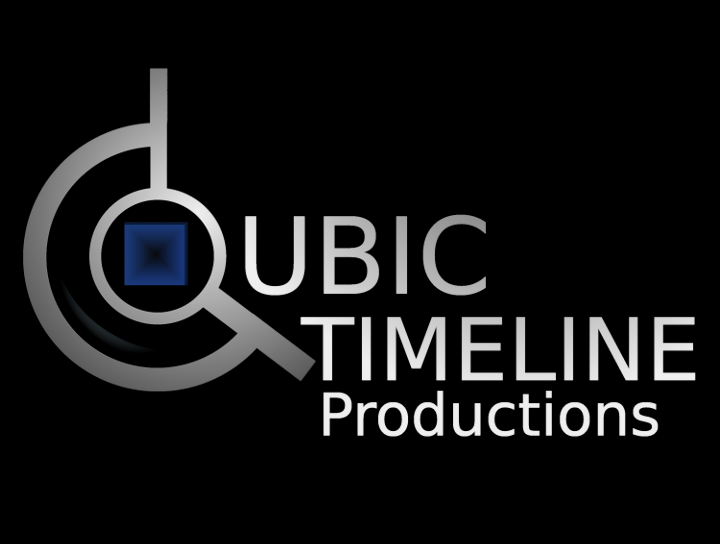
Cubic Timeline Productions: Well our first game NCG-19 Gravitus (now defunct mmo) was on greenlight and our Second Vulture was on direct. I'm not sure if I can comment too much on the effectiveness of greenlight as we never launched despite being greenlit but it took us quite a while to get through and realistically that contributed to our admittedly not up to snuff project getting cancelled which I think was positive although disappointing at the time.
MO: What are your thoughts on Steam Direct?
CTP: The new Direct process is a nice streamlining time frame wise but I think it removed that cool down period that helps new studios realistically assess if their product is up to market standards.
MO: Has your game been affected in any way with the transition between the two systems?
CTP: Vulture had it's problems at launch as but that was more with a mistake in not delaying release somewhat, we have also had a much harder time getting coverage than we did with Gravitus despite the Vulture being more complete/professional and having a larger marketing effort.
MO: Have the large number of games coming onto Steam affected your game in any way?
CTP: Frankly we have had almost no traction marketing Vulture but I am not certain enough that this is caused by the steam direct issues to pin that blame on anyone. The market flooding can't have helped though.
MO: Do you think Steam Direct is an overall improvement over Greenlight?
CTP: I think direct is a good way to go in theory but I think the product deposit is far too low and just opens the door to bad actors. Realistically if they even brought it (the fee) up to 500 that would be in the reach of reasonable crowd funding for developers not of the means to otherwise launch at that price point.
MO: Would you say that there is possibly a lack of tools that Valve give to first-time developers entering their store to help them find their footing?
CTP: Well I feel like the tools provided are pretty comprehensive but it can be a bit difficult to figure out how to use them effectively and I think steam is between a rock and a hard place there, bad actors will game it if they give too much info/access but they also need legitimate developers to be able to use the marketing tools effectively. One thing that might help if I was to spit ball ideas is that they could provide some sort of developer driven manual cross promotion. Like two developers are able to agree their games have the same demographics to increase relevance between purchasers of titles. This would have the added benefit of the bad actors becoming more apparent through the interconnection of bad actor accounts.
MO: What's your stance on Valve's current moderation approach?
CTP: Well I would like them to clean up more of the asset flip/ shovelware as I know it is hurting visibility of legitimate titles and also consumer trust in the Steam platform. I think they need to either marginally increase the barrier to entry to eliminate profitability of scams or consider some sort of additional curation with the build submission process.
MO: To build off a bit more on that point, what do you personally see as a good middle line in regards to moderation?
CTP: Well that's the tricky question in all of this. Giving it some thought here one solution might be to enforce a beta period where only tester/press keys can be generated. This would also allow steam more time to vet games for a specific measurable technical quality. I assume asset flippers and card scammers don't exactly have QA but real teams do so a valve enforced QA step might help. I think valve needs to look at ways that these bad actors differ in workflow and deliverables from other developers and use that as a starting ground for vetting. It might hit a few small inexperienced indies but ideally they will improve their process and thus produce a better product once resolving the issues.
MO: Do you think that there is a simple method of resolving the issues with Steam or do you think that the issue is more complex?
CTP: I think it will take a number of approaches as there isn't one core issue but several that are lumped into the category of bad actors. You have Shovelware which to an extent I think is unavoidable because sometimes bad games just get released. You have asset flips which are a bit separate still from shovel ware as that goes beyond being just a bad or uninspired game and then you have the worst stuff that is key scammers and card scammers which I think is probably the easiest to deal with. I'm note sure if much can be done about shovel ware other than at least making sure it is a functioning game through vetting. Asset flipping I think is a bit more of an issue and there might be a solution in vetting or in asset ownership rules (50% or more must be in house or contracted or something) Card and key scams I think tighter vetting is the fix for. So I think extended initial build vetting would fix most of those issues but I wouldn't call implementing such a thing simple I guess.
Have a tip, or want to point out something we missed? Leave a Comment or e-mail us at tips@techraptor.net
